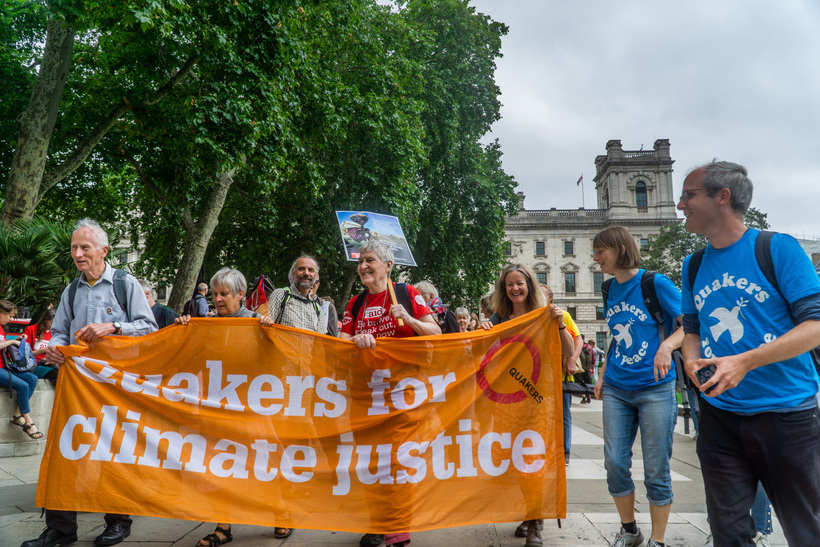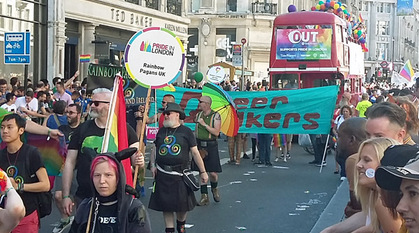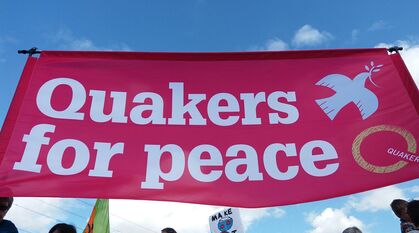Sharing Quaker values: how you can prepare for a general election
General elections are a key opportunity to influence future decision-makers. Grace Da Costa shares how to get involved.

Hello, I'm Grace – the new public affairs and advocacy manager at Quakers in Britain. I've worked in this area for eight years, and have also stood as a parliamentary candidate, so I've seen things from both sides of the lobbying table.
Part of my role is to enable Quakers to successfully influence politicians and parties. One of the most important times to do this is in the run-up to a general election: if you can get a candidate or party to pledge something during an election, it might result in an important change later on.
Although a general election hasn't been called yet, it's likely that one will happen soon, so we need to start trying to influence the people who might win.
I'd like to share with you some key ways to get involved in this work, using the new election briefing (PDF) we've produced. Whether you're a seasoned campaigner or just starting out, hopefully some of these tips will prove useful.
Approaching your local candidates
One of the most powerful things you can do is approach your local candidates and ask them to meet with you. You can find out the names and email addresses of the people standing for parliament in your area by looking at local party websites and social media. Candidate selections are also often announced in local newspapers.
Not all the parties will have announced their candidates yet, so you may have to keep an eye out for when they do.
If there are lots of candidates in your area, you might not have time to meet them all. You could look at the last election results to see who's most likely to win, and only contact the top three parties.
Once you have names and contact details, you can tailor this email template (Word), attach the briefing, and send it to all the candidates individually. It will be more effective if one person sends the email on behalf of your local meeting, rather than several of you sending it as individuals.
Building the relationship
If a candidate agrees to meet you, you can use the briefing and further information on our website to talk them through the issues that Quakers care about. You can share your experiences of putting faith into action in your local community. Offer to support them to bring about positive change in areas where you share common goals.
This initial meeting can be the start of an ongoing relationship. Why not follow up with a 'thank you' email, maybe sharing more information about what you discussed. You may wish to send emails after the election congratulating and commiserating the candidates and reaffirming your commitment to working with them to improve things in your community.
Sharing more widely
If it feels appropriate, ask the candidate if you can take a photo of the meeting, and post it on your social media accounts if you have them. Don't forget to tag @BritishQuakers! Doing this raises the profile of our work and helps spread the message.
You can also send a press release afterwards to local newspapers. For more help in contacting the media, get in touch with our Media Relations Officer, Anne van Staveren.
We'd love to hear how your meetings with politicians go. The more we know about what engagement you're having with politicians, the more we can refine our approach to public affairs. Use this form to keep in touch. You can also email me with any questions or suggestions.
Holding a hustings
A hustings can be another great way of engaging with candidates in the run-up to an election. It's where you bring the candidates together to put forward their ideas and answer questions from local people. Holding a hustings can encourage participation in elections and demonstrate Quaker values in the world. Check out our elections and hustings guide to find out more.
Be aware that you can only hold a hustings during the six-week period before a general election. At the time of writing, a general election hasn't been announced, so you wouldn't be able to hold a hustings.
And finally…
I wish you the very best of luck with your political engagement. If you have any questions, please don't hesitate to contact me. I look forward to hearing how it goes!


